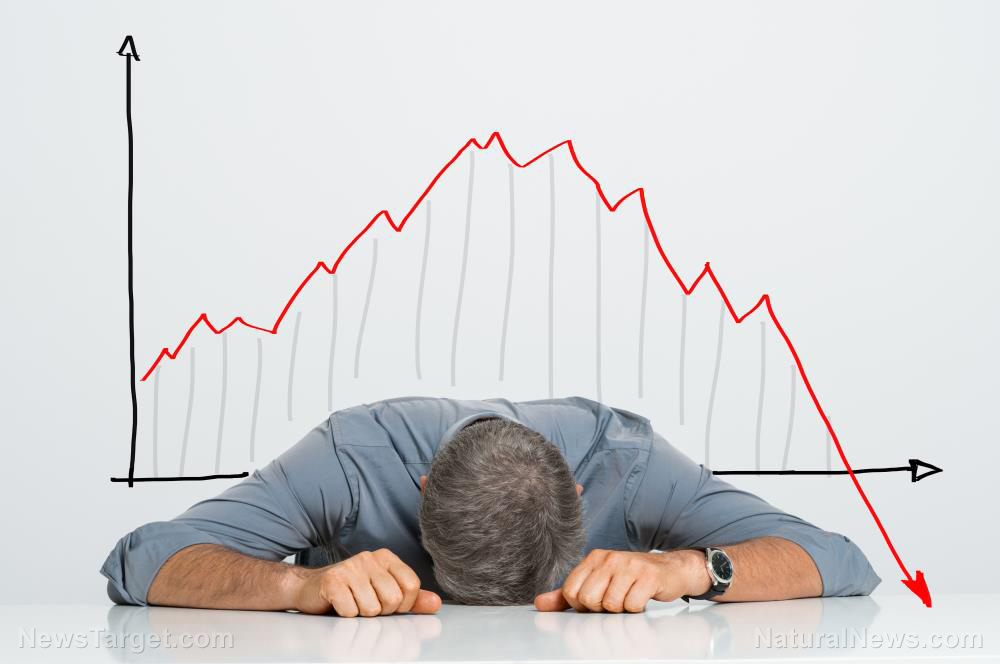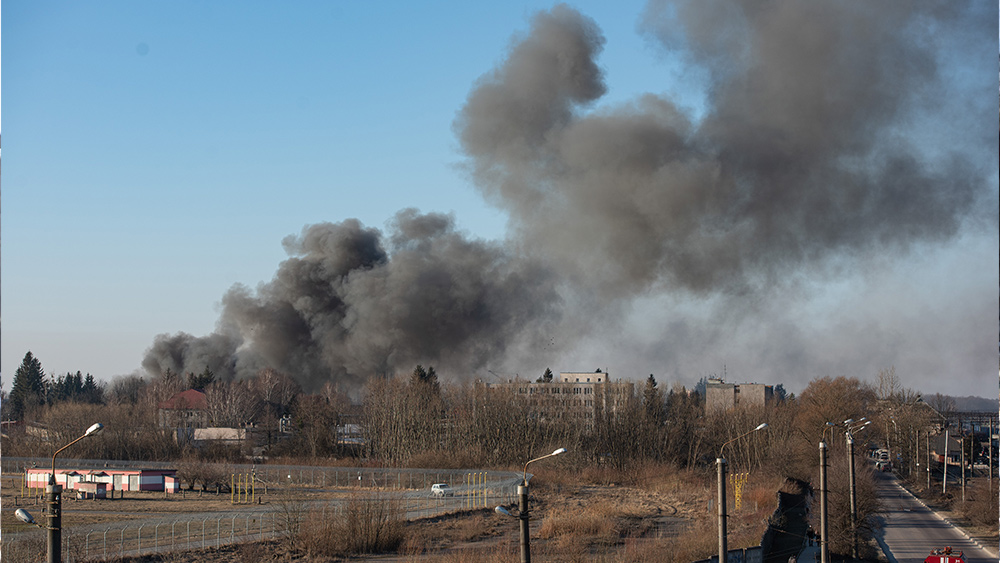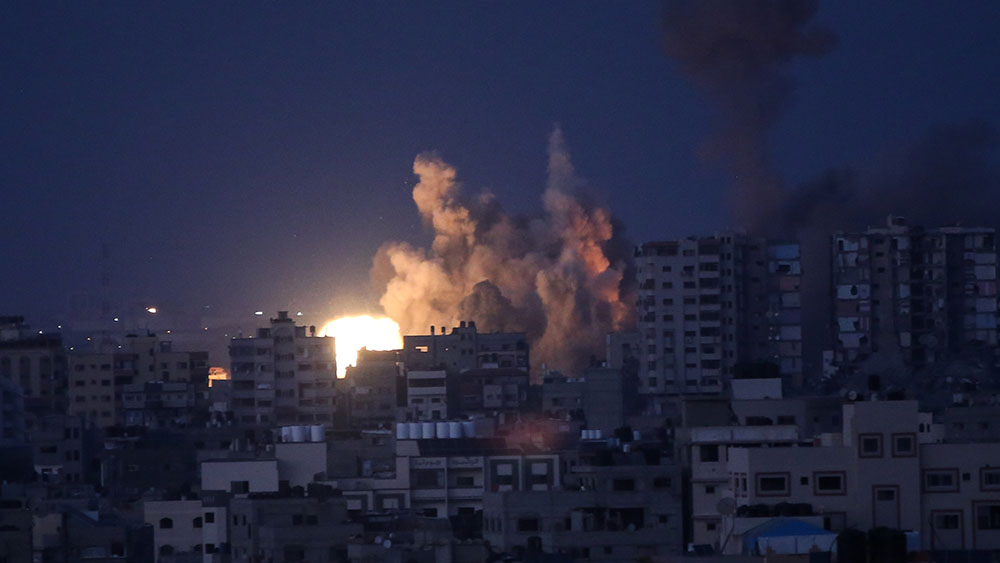 Parler
Parler Gab
Gab
- U.S. President Donald Trump brokered a contentious ceasefire between Iran and Israel, which failed within hours of taking effect amid mutual accusations of violations.
- U.S. and European stocks surged as oil prices plummeted 6%, with Nasdaq 100 hitting a record close.
- Analysts warn tensions could reignite despite Trump’s announcements, complicating long-term stability.
- Federal Reserve Chair Jerome Powell defends rate hikes amid pressure from Trump for aggressive cuts.
- Lower oil prices ease inflation worries but expose global vulnerability to Middle East instability.
Market snapshot: Stocks soar as oil crashes
U.S. equity futures led the global rally, with Nasdaq 100 futures jumping 1% and S&P 500 futures gaining 0.8%. Stocks held onto post-cessation gains after the markets opened, with the Dow Jones Industrial Average closing up 507 points (1.2%), the S&P 500 rising 1.1% and the Nasdaq Composite surging 1.4%. Oil markets cratered as hopes for a sustained truce dominated trading. Brent crude futures tumbled 6.1% to $69 a barrel, marking their largest one-day drop since late 2022, while U.S. West Texas Intermediate sank 6%, erasing earlier spikes fueled by fears of energy disruptions. “The ceasefire’s short lifespan shows markets are selling hopes, not durability,” said Sean Callow of InTouch Capital Markets. “Lower oil eases inflation, but traders are pricing in risks—not peace.” European stocks mirrored the positivity, with Germany’s DAX soaring 2.2% and France’s CAC 40 climbing 1.4%. Airline shares, particularly exposed to fuel costs, rallied strongly: Delta and United Airlines surged over 2%, while European carriers like Lufthansa and Ryanair rose around 3%.Ceasefire fractures after hours, raising uncertainty
Trump’s announcement—dubbed “The 12 Day War” end—initially heralded a pause to a conflict that had threatened to draw global superpowers deeper. Key terms included a 12-hour window for Iran and Israel to halt strikes, followed by an “official end” to hostilities. But immediately after deadlines passed, both sides accused each other of violations:- Iran’s alleged attacks: The Israeli military claimed to intercept missiles from Iran hours after ceasefire terms began, with Finance Minister Bezalel Smotrich vowing “Tremble, Tehran.” Tehran denied launching strikes, calling such reports “lies.”
- U.S. mixed messaging: While Trump pleaded for restraint, Vice President Vance dogwhistled aggressive rhetoric, stating U.S. strikes had crippled Iran’s nuclear capacity.
Fed faces crosscurrents as truce sparks debate
Federal Reserve Chair Jerome Powell faced piercing questions about interest rates during testimony, with Trump’s Fed criticism heating up:* “Europe has had 10 cuts, we have had ZERO.” While markets priced in steep cuts by year-end, Powell emphasized patience, stressing the need to monitor tariff impacts. Analysts split on if a July cut is feasible:- Dovish push: Chicago Fed’s Charles Evans highlighted “easing inflation” as grounds for trimming rates soon.
- Hawkish caution: Dallas Fed’s Lorie Logan warned “premature cuts risk prolonging inflation.”
Economic risks ahead: Post-ceasefire ramifications
Despite short-term euphoria, analysts flagged enduring threats.- Energy dependence: OPEC+’s upcoming meeting looms, with producers likely to test global optimism with output cuts.
- Tariff tar pit: Trump’s “One Big Beautiful Bill” trade deal remains stalled in Congress, while South Korea and Japan scramble for U.S. tariff exemptions.
- Geopolitical tinderbox: Analysts at RTRS noted “splintered trade and debt crises in Germany signal global financial risks.”
AI-powered “digital employees” revolutionize banking, work alongside human employees
By Ramon Tomey // Share
Trump administration restricts free speech with new censorship measures
By Finn Heartley // Share
Russia alleges Ukraine hid chemical drone munitions amid escalating CWC violations
By Willow Tohi // Share
US halts military aid to Ukraine: Kiev’s surrender is near
By Lance D Johnson // Share
Governments continue to obscure COVID-19 vaccine data amid rising concerns over excess deaths
By patricklewis // Share
Tech giant Microsoft backs EXTINCTION with its support of carbon capture programs
By ramontomeydw // Share
Germany to resume arms exports to Israel despite repeated ceasefire violations
By isabelle // Share










